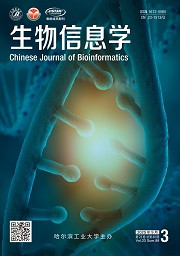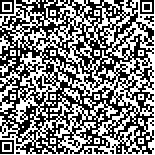| 摘要: |
| 减数分裂重组通过基因转变、碱基替换等方式影响基因组进化。紧邻碱基对突变偏好性有很强的影响,但该“紧邻碱基效应”如何随重组率变化有待深入研究。本文提出基于条件互信息(Conditional mutual information)量化突变对紧邻碱基依赖性的方法,并利用人类SNP等相关数据,分析重组率如何影响突变对紧邻碱基的依赖性。结果表明:在全基因组水平上, SNP位点上的突变对紧邻碱基的依赖性(即平均条件互信息)随着重组率的增加而增加;具体而言,当SNPs两侧碱基为A/G、C/G或C/T时,随着重组率的增加突变偏向性增强,但两侧碱基为A/A或T/T时,重组率对SNP突变偏向性产生抑制作用;另外,重组率越高,外显子与基因间区SNP的突变偏好性越强;而内含子区域SNP的突变偏好受到高重组率的抑制。结果有助于深入理解减数分裂重组如何影响基因组进化。 |
| 关键词: 减数分裂重组 突变对紧邻碱基的依赖性 条件互信息 突变偏好性 |
| DOI:10.12113/202205011 |
| 分类号:Q61 |
| 文献标识码:A |
| 基金项目: |
|
| Neighboring base-dependent mutation bias and recombination rate in the human genome |
|
ZHANG Qiguo1, LIU Guoqing1,2
|
|
(1.School of Life Science and Technology, Inner Mongolia University of Science and Technology, Baotou 014010,China;2.Inner Mongolia Key Laboratory of Functional Genomics and Bioinformatics, Inner Mongolia University of Science and Technology, Baotou 014010,China)
|
| Abstract: |
| Meiotic recombination affects genome evolution in several manners such as gene conversion and base substitutions. The neighboring bases have a strong impact on the mutational bias, but it is unclear how the “neighbor-dependent effect” varies with recombination rate. In this study, we proposed a method of quantifying the dependence of mutations on immediately adjacent bases on the basis of conditional mutual information (CMI), and investigated how recombination rate affects the neighbor-dependent mutational bias using the human SNP data derived from the1000 Genomes Project. The results showed that at the genome-wide level, the dependence of mutations at SNP loci on immediately adjacent bases (i.e. average conditional mutual information) increased with recombination rate. Specifically, mutational bias increased with recombination rate when SNPs were flanked by A/G, C/G or C/T bases, but recombination rate inhibited mutational bias when SNPs were flanked by A/A or T/T bases. In addition, the higher the recombination rate is, the stronger the mutational bias in exons and intergenic regions. But the mutational bias in introns is inhibited by high recombination rates. |
| Key words: Meiotic recombination Dependence of mutation on neighboring bases Conditional mutual information Mutation bias |






